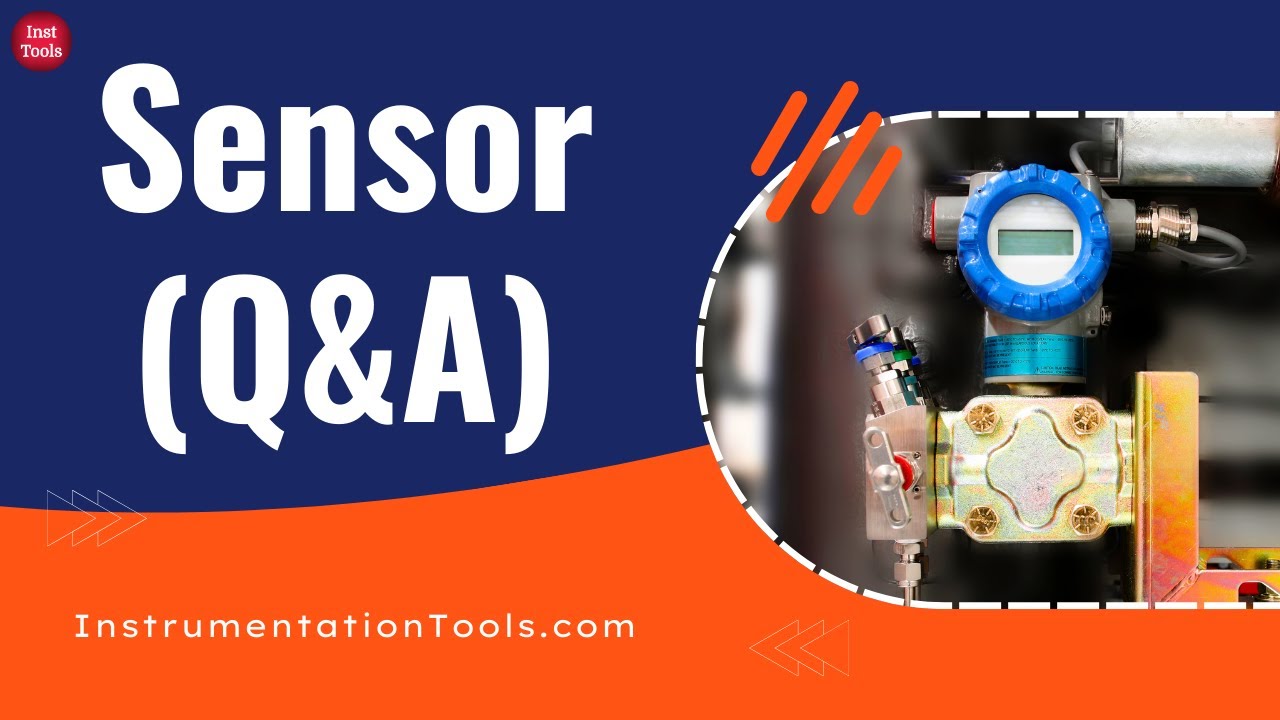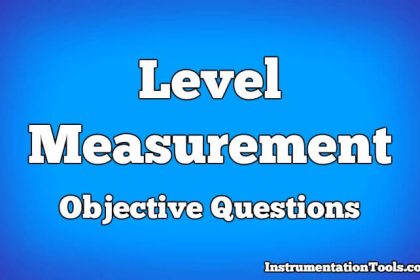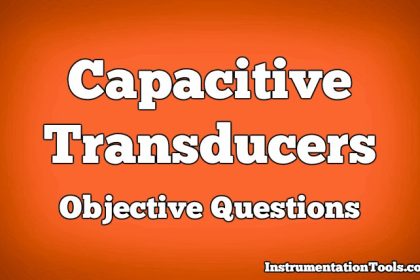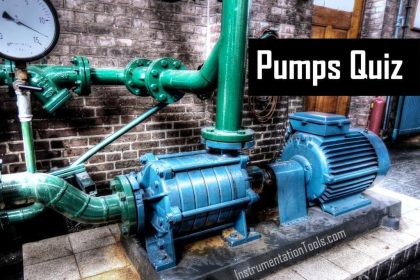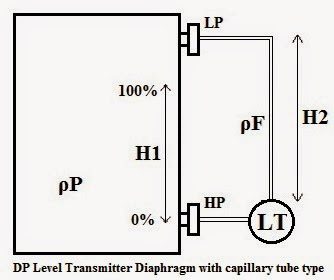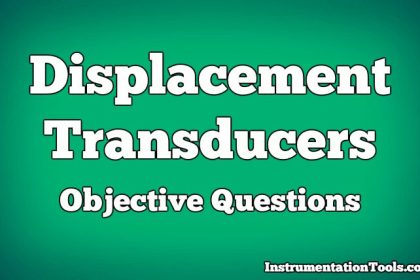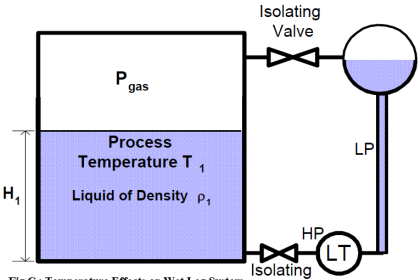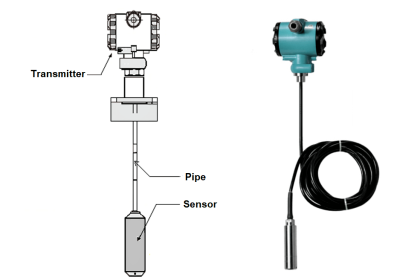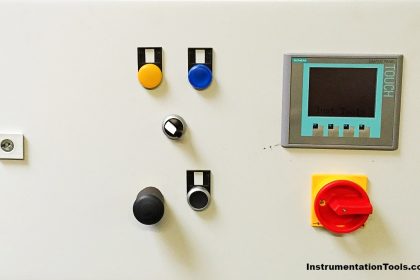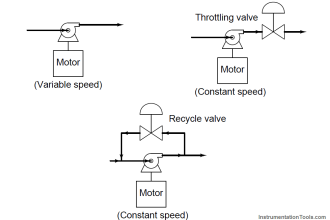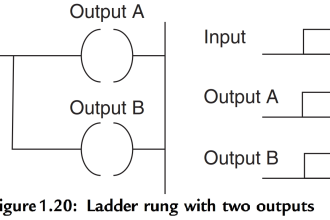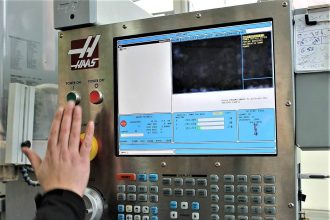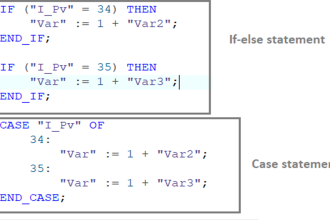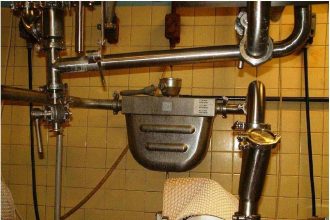This level gauges objective questions to help you with instrumentation exams and learn level indicators in industrial instrumentation.
Level Gauges Objective Questions
This video helps you to learn about the explanations for each question on the level measurement instrumentation.
Question 1
What is the working principle of a float type level gauge?
A. Magnetic coupling
B. Buoyancy
C. Light reflection
D. Direct visual inspection
Show the Answer
Buoyancy
Question 2
What is the key working principle of a reflex level gauge?
A. Magnetic coupling
B. Buoyancy
C. Light reflection and refraction
D. Direct visual inspection
Show the Answer
Light reflection and refraction
Question 3
How does a sight glass gauge provide level indication?
A. Magnetic coupling
B. Buoyancy
C. Direct visual inspection
D. Light reflection
Show the Answer
Direct visual inspection
Question 4
What is the main operational principle of a magnetic level gauge?
A. Buoyancy
B. Direct visual inspection
D. Magnetic coupling
Show the Answer
Magnetic coupling
Question 5
How do float type level gauges translate liquid level into readable measurements?
A. Using prisms
B. Magnetic coupling
C. Float movement
D. Light reflection
Show the Answer
Float movement
Question 6
What is the primary advantage of a magnetic level gauge?
A. Low cost
B. No power required
C. High accuracy and safety
D. Simple installation
Show the Answer
High accuracy and safety
Question 7
What type of level gauge involves a transparent tube for direct visual inspection?
Show the Answer
Sight Glass Gauge
Question 8
In which scenario is a magnetic level gauge most beneficial?
A. Low-pressure applications
B. Non-hazardous liquids
C. High-temperature and high-pressure applications
D. Simple water tanks
Show the Answer
High-temperature and high-pressure applications
Question 9
What is a key disadvantage of using a sight glass gauge?
A. High cost
B. High maintenance
C. Limited to non-hazardous liquids
D. Not suitable for continuous monitoring
Show the Answer
Limited to non-hazardous liquids
Question 10
Which type of level gauge is best for colorless liquids?
A. Magnetic Level Gauge
B. Reflex Level Gauge
C. Float Type Level Gauge
D. Sight Glass Gauge
Show the Answer
Reflex Level Gauge
Question 11
Which level gauge is preferred for high-pressure applications?
A. Reflex Level Gauge
B. Float Type Level Gauge
C. Sight Glass Gauge
D. Magnetic Level Gauge
Show the Answer
Magnetic Level Gauge
Question 12
Which type of level gauge is not recommended for use with corrosive liquids?
A. Magnetic Level Gauge
B. Reflex Level Gauge
C. Float Type Level Gauge
D. Sight Glass Gauge
Show the Answer
Sight Glass Gauge
Question 13
Why might a float type level gauge be chosen over other types?
A. Cost-effective
B. High precision
C. Low maintenance
D. Continuous monitoring capability
Show the Answer
Continuous monitoring capability
Question 14
Which level gauge is best suited for hazardous chemical applications?
A. Float Type Level Gauge
B. Sight Glass Gauge
C. Reflex Level Gauge
D. Magnetic Level Gauge
Show the Answer
Magnetic Level Gauge
Question 15
What is the main drawback of using a reflex level gauge?
A. High cost
B. Limited to non-hazardous liquids
C. Not suitable for high-pressure applications
D. Reduced visibility with dark liquids
Show the Answer
Reduced visibility with dark liquids
Question 16
Which level gauge is often used in boiler systems?
A. Magnetic Level Gauge
B. Reflex Level Gauge
C. Float Type Level Gauge
D. Sight Glass Gauge
Show the Answer
Sight Glass Gauge
Question 17
Which level gauge is least affected by changes in liquid density?
A. Magnetic Level Gauge
B. Reflex Level Gauge
C. Float Type Level Gauge
D. Sight Glass Gauge
Show the Answer
Magnetic Level Gauge
Question 18
Why might a magnetic level gauge be chosen for use with hazardous liquids?
A. Cost-effective
B. Simple installation
C. High maintenance
D. No direct contact with the liquid
Show the Answer
No direct contact with the liquid
Question 19
Which level gauge type is typically installed directly on the vessel wall for easy monitoring?
A. Reflex Level Gauge
B. Sight Glass Gauge
C. Float Type Level Gauge
D. Magnetic Level Gauge
Show the Answer
Sight Glass Gauge
Question 20
Why are sight glass gauges not recommended for high-pressure applications?
A. High cost
B. High maintenance
C. Safety concerns
D. Poor accuracy
Show the Answer
Safety concerns
Question 21
Which type of level gauge is most effective in high-temperature environments?
A. Reflex Level Gauge
B. Magnetic Level Gauge
C. Sight Glass Gauge
D. Float Type Level Gauge
Show the Answer
Magnetic Level Gauge
Question 22
What is a primary disadvantage of using float type level gauges with viscous liquids?
A. High cost
B. Difficult installation
C. Requires power
D. Reduced accuracy
Show the Answer
Reduced accuracy
Question 23
Which level gauge type uses prisms to reflect light for level indication?
A. Magnetic Level Gauge
B. Float Type Level Gauge
C. Reflex Level Gauge
D. Sight Glass Gauge
Show the Answer
Reflex Level Gauge
Question 24
Why are reflex level gauges not ideal for use with opaque or dark liquids?
A. High cost
B. High maintenance
C. Poor visibility
D. Requires power
Show the Answer
Poor visibility
Question 25
Which level gauge type is often used in food and beverage industries for its hygienic properties?
A. Magnetic Level Gauge
B. Reflex Level Gauge
C. Sight Glass Gauge
D. Float Type Level Gauge
Show the Answer
Sight Glass Gauge
Question 26
Why are float type level gauges less effective with highly viscous liquids?
A. High cost
B. Complex installation
C. Reduced float movement
D. Requires power
Show the Answer
Reduced float movement
Read Next:
- Types of Level Measurement
- What is Reflex Level Gauge?
- Plumb-bob Level Gauge Principle
- Magnetic Level Gauge Float Design
- Types of Level Gauges
